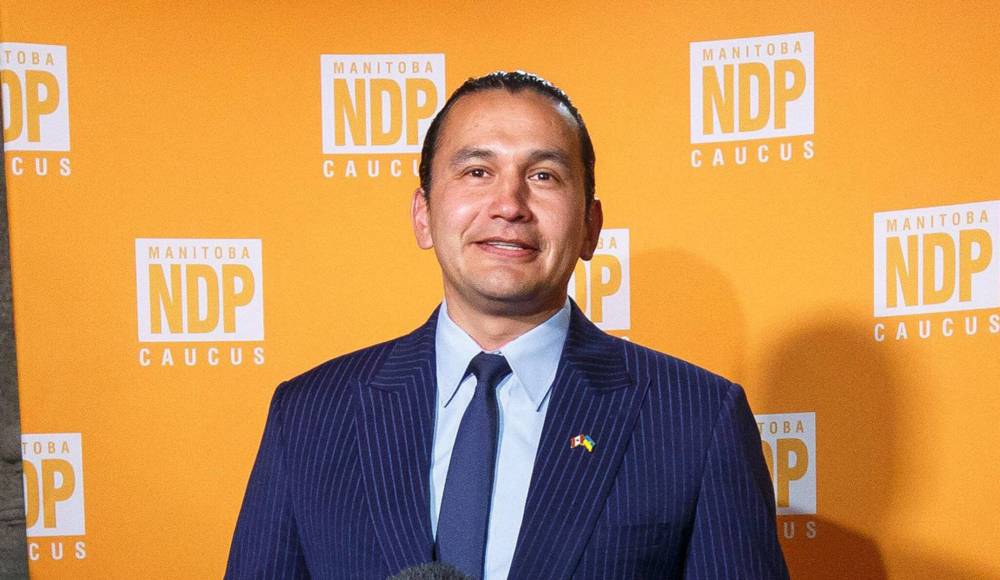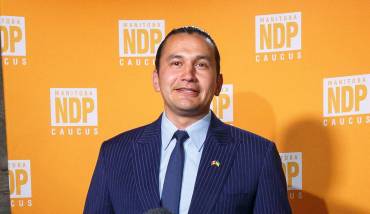NDP misleading Manitobans on private health care
Read this article for free:
or
Already have an account? Log in here »
To continue reading, please subscribe:
Monthly Digital Subscription
$0 for the first 4 weeks*
- Enjoy unlimited reading on winnipegfreepress.com
- Read the E-Edition, our digital replica newspaper
- Access News Break, our award-winning app
- Play interactive puzzles
*No charge for 4 weeks then price increases to the regular rate of $19.00 plus GST every four weeks. Offer available to new and qualified returning subscribers only. Cancel any time.
Monthly Digital Subscription
$4.75/week*
- Enjoy unlimited reading on winnipegfreepress.com
- Read the E-Edition, our digital replica newspaper
- Access News Break, our award-winning app
- Play interactive puzzles
*Billed as $19 plus GST every four weeks. Cancel any time.
To continue reading, please subscribe:
Add Free Press access to your Brandon Sun subscription for only an additional
$1 for the first 4 weeks*
*Your next subscription payment will increase by $1.00 and you will be charged $16.99 plus GST for four weeks. After four weeks, your payment will increase to $23.99 plus GST every four weeks.
Read unlimited articles for free today:
or
Already have an account? Log in here »
Hey there, time traveller!
This article was published 20/09/2022 (1181 days ago), so information in it may no longer be current.
NDP Leader Wab Kinew said during a news conference Tuesday that Manitobans should be wary of plans by the Progressive Conservative government to expand the “privatization” of health care. Yet when pressed about what he would do with existing private contracts if he were premier, Kinew said he would keep them. So what was the point of the news conference? To try to scare people into thinking the Tories want to adopt a two-tier health-care system.
Canadian politicians have been weaponizing the term “privatization” for years when it comes to health care. It’s a tactic Kinew has decided to adopt. The goal is to try to blur the line between “privatization” and “two-tier medicine” to confuse and scare people. The two terms have very different meanings.
All provincial governments in Canada use a mix of public and private providers to deliver health care services. They contract with private companies to provide a wide range of medical services, including surgeries and diagnostic testing such as blood samples, biopsies and colonoscopies. In some cases, patients don’t even know the difference between the two.
The only thing that matters is that patients get quality service in a timely fashion and don’t have to pay for it out of pocket. The rest, including whether it’s delivered by a public hospital or a private clinic, is immaterial.
The use of private contractors in health care was standard practice under the former NDP government in Manitoba, as it is under the Tory regime. The ratio between public and private providers hasn’t changed much since the Tories took office in 2016.
Politicians such as Kinew deliberately confuse the term “private health care” with “two-tier medicine” as a strategy to attack their political opponents.
Politicians such as Kinew deliberately confuse the term “private health care” with “two-tier medicine” as a strategy to attack their political opponents. A two-tiered health-care system allows patients to pay for medical services directly. In most cases, that’s not permitted under the Canada Health Act, unless a patient crosses a provincial border for treatment (or travels to another country).
Kinew knows that and he knows the difference between the kind of private delivery the Tories are proposing and two-tier medicine. He blurs the lines between the two to try to instill fear.
“The PCs can continue flirting with private health care but we know that’s not what we want here in Canada or here in Manitoba,” Kinew said. “We want a public health-care system that works for everybody.”
Kinew was referring to a recent statement by Premier Heather Stefanson, where she repeated her government’s pledge to reduce wait times by seeking more surgical and diagnostic testing capacity in the private sector. It’s not a new proposal. Governments have been contracting with the private sector for years. It doesn’t mean the province plans to force patients to pay directly for medical care.
MIKE DEAL / FREE PRESS FILES “The PCs can continue flirting with private health care but we know that’s not what we want here in Canada or here in Manitoba,” Wab Kinew said.
It means the province will continue to seek opportunities in the private sector to deliver services to patients under a universal, publicly funded system. It’s hardly revolutionary. Which is why, when questioned further, Kinew said he is not opposed to using the private sector to deliver medical services, as long as it’s permitted under the Canada Health Act.
There are good reasons for governments to seek private solutions in health care, which is why both the NDP and Tories have pursued it over the years. In addition to building more capacity in the system, tendering the work can help keep costs in check through a competitive bid process.
It also provides physicians, nurses and other front-line staff with more employment choices. Not everyone wants to work in a public hospital. Contracting out also means governments are spared the cost of building expensive facilities, or expanding existing ones. That will become increasingly important as demographics change over the next few decades, when the baby boom dies out and there is less demand on the health care system. The less bricks and mortar government owns, the less costly it will be for taxpayers.
Finding the right blend of public and private services within a publicly funded health-care system isn’t about ideology, as Kinew alleges. It’s about evidence-based decision making and doing what’s right for patients. Kinew would do well to drop the fear-mongering and start proposing practical solutions to improve health care.
tom.brodbeck@freepress.mb.ca

Tom has been covering Manitoba politics since the early 1990s and joined the Winnipeg Free Press news team in 2019.
Our newsroom depends on a growing audience of readers to power our journalism. If you are not a paid reader, please consider becoming a subscriber.
Our newsroom depends on its audience of readers to power our journalism. Thank you for your support.








